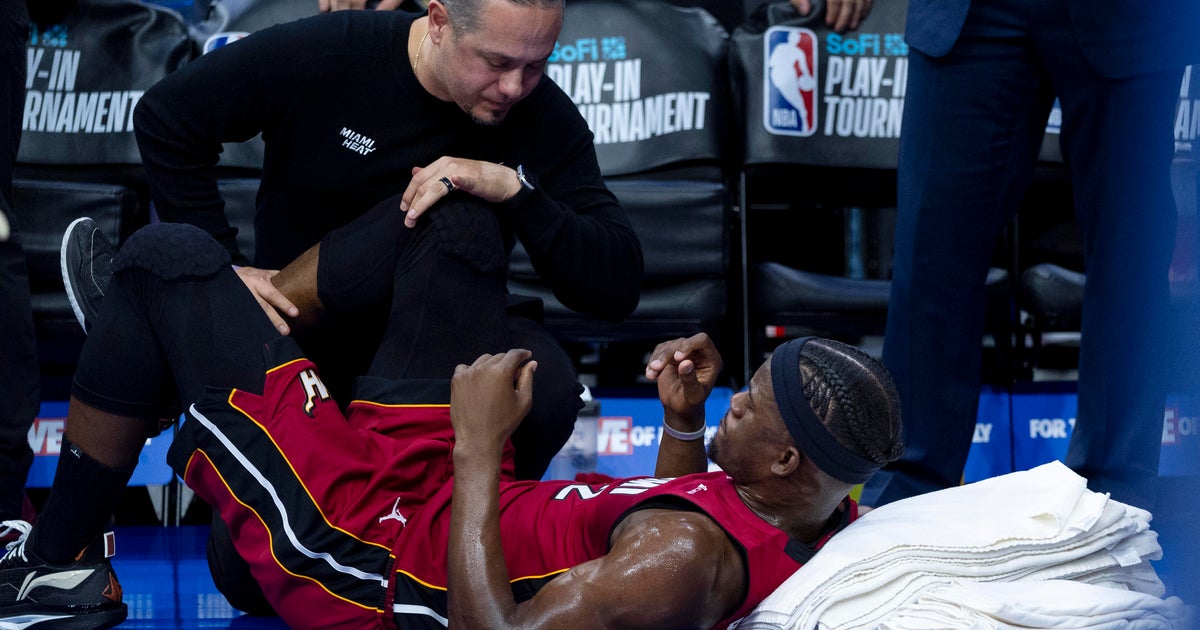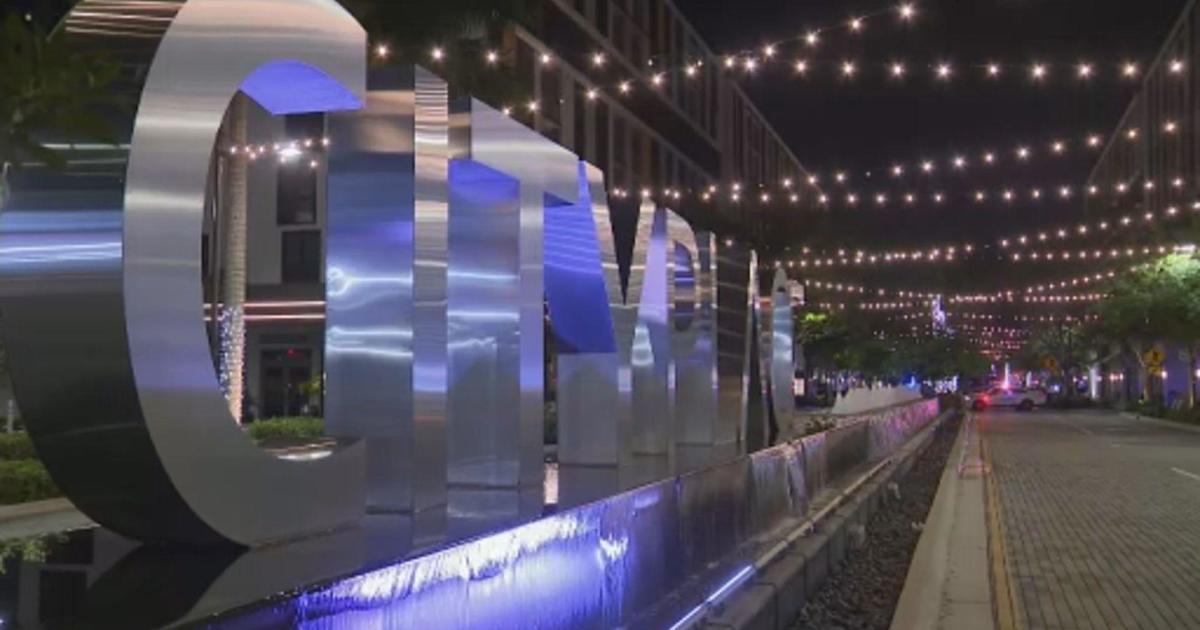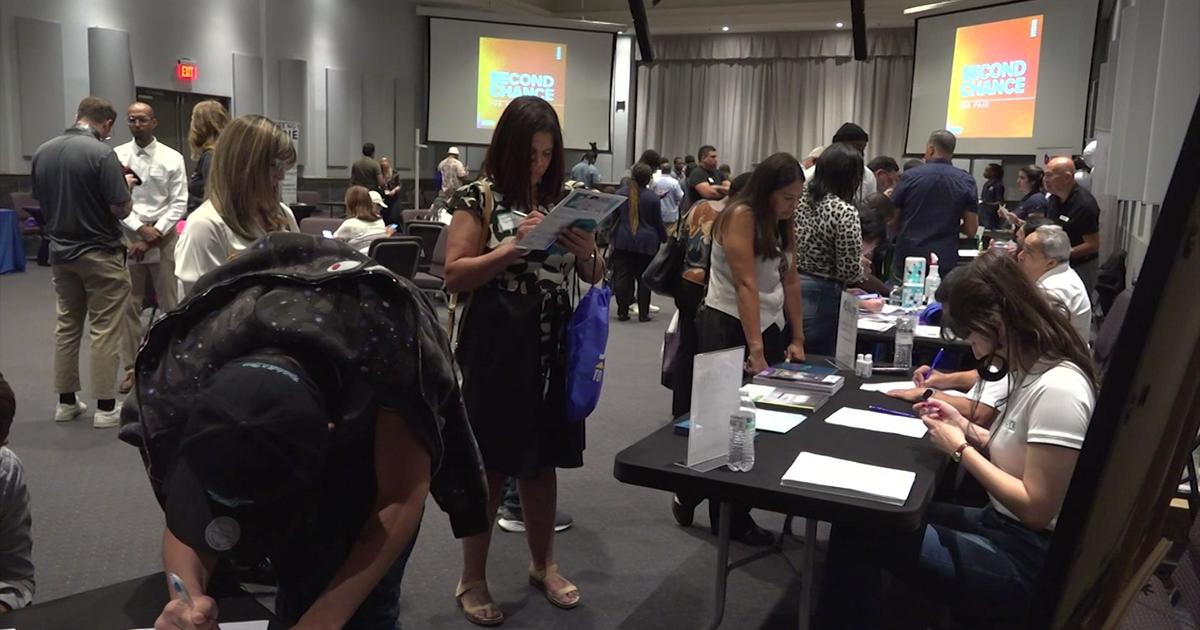Having A Simple Colonoscopy Could Be Life Or Death For Adults 50 And Older
Follow CBSMIAMI.COM: Facebook | Twitter
MIAMI (CBSMiami) – March is colon cancer screening awareness month, aimed at getting people 50 and older to get themselves checked out.
Nobody enjoys getting a colonoscopy, but getting one could save your life.
Just ask Jeff Pine.
Jeff was 54 when he got his first colonoscopy, and the results were not good.
He had colon cancer. Stage 3.
"I got woken up right after the procedure and the doctor say 'Hey, you've gotta come in my office as soon as they release you here,'" Jeff remembers. "We need to talk."
He underwent surgery and 6 months of chemotherapy. Thankfully, he is now cancer free.
But as a survivor, he now has an elevated risk of getting it again, so he's been getting screened once a year.
He now understands the importance.
"It's not that big a deal in the scheme of things," he says. "It's your life. It's worth doing the screening."
Jeff's doctor is Gary Luckman, of West Broward Gastroenterology and Internal Medicine in Plantation.
Dr. Luckman sees Jeff before the procedure takes place.
"The good news is you did great," Dr, Luckman says, referring to Jeff's prior treatment. "We're going to make sure you continue to do great."
Luckman says more people die from colon cancer each year than either breast or prostate cancer.
And, he says, colon cancer is also the most preventable - IF patients start getting screened at age 50.
"If you wait to have symptoms, then your chance of a full cure is much lower than if we find it in a routine screening," Luckman says.
Colonoscopies allow doctors to find and remove polyps that could, if left alone, one day turn into cancer.
Luckman says for most patients, having a colonoscopy once every ten years is enough.
For Jeff, and others with elevated risk – either because of past disease or a family history – more frequent screenings are needed.
African Americans have an earlier onset of colon cancer risk, so screenings should start at age 45.
Patients who are obese, who smoke, or who have inflammatory bowel disease are also at elevated risk.
Jeff is brought into the procedure room.
"Here comes your cocktail," says the anesthesiologist as she administers the drug, Propofol, which will put Jeff to sleep.
Dr. Luckman jokes, "We call this milk of amnesia." Jeff laughs.
He won't remember any part of the procedure itself.
The least pleasant part, as anyone who's had a colonoscopy will tell you, is the prep.
In the hours before the procedure, the patient has to take laxatives to clean the colon.
If the colon is not sufficiently clean, the doctor cannot get a good enough view and the patient will have to go home and come back another day.
A long flexible tube called an endoscope allows the doctor to see the colon. There is a camera and light at the end.
Dr. Luckman is happy with what he sees. "Everything looks nice and clean," he says. No polyps.
"He was 54 when the cancer was diagnosed," Luckman says. "If he had come in at 50, I can guarantee you it would have (just) been a polyp. I would have seen it. I would have taken it out." The polyp would not have had the chance to develop into cancer. "He's lucky. It could have taken his life. Luckily, it didn't."
A half hour after the procedure, Jeff was awake and happy to hear the results.
Now instead of once a year, Dr. Luckman says he only needs to be screened once every three years.
That's fine with Jeff.
Colonoscopies, he says, are "very easy. There's no big deal to it. It's not a big deal considering the alternative – which is death and cancer. This is well worth it."



